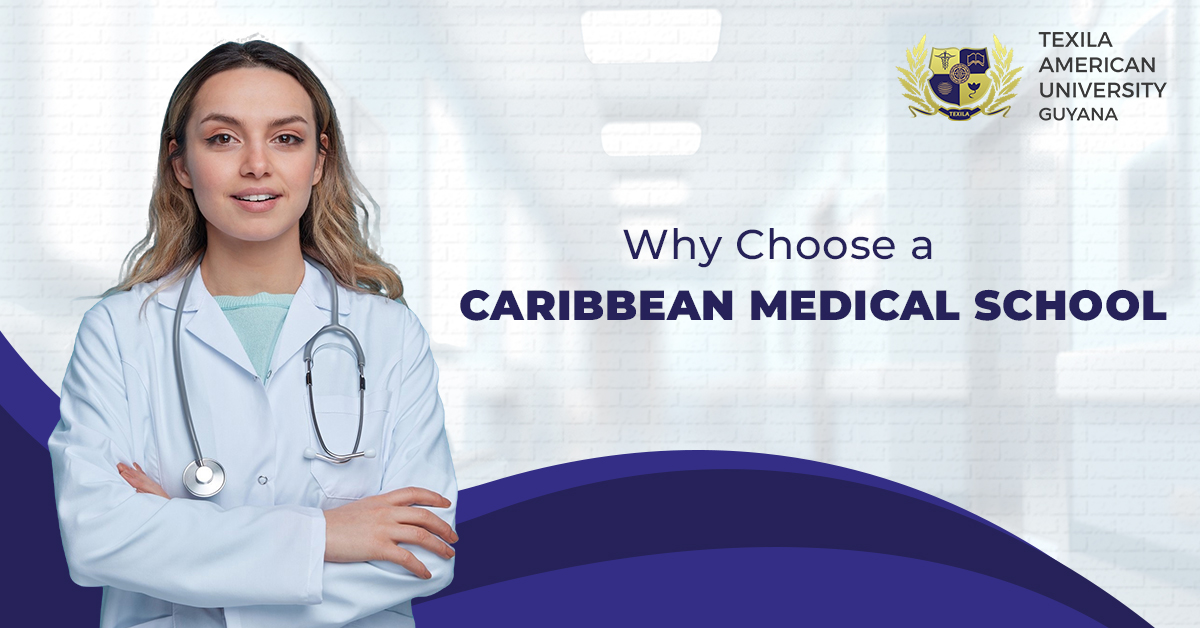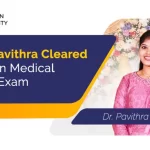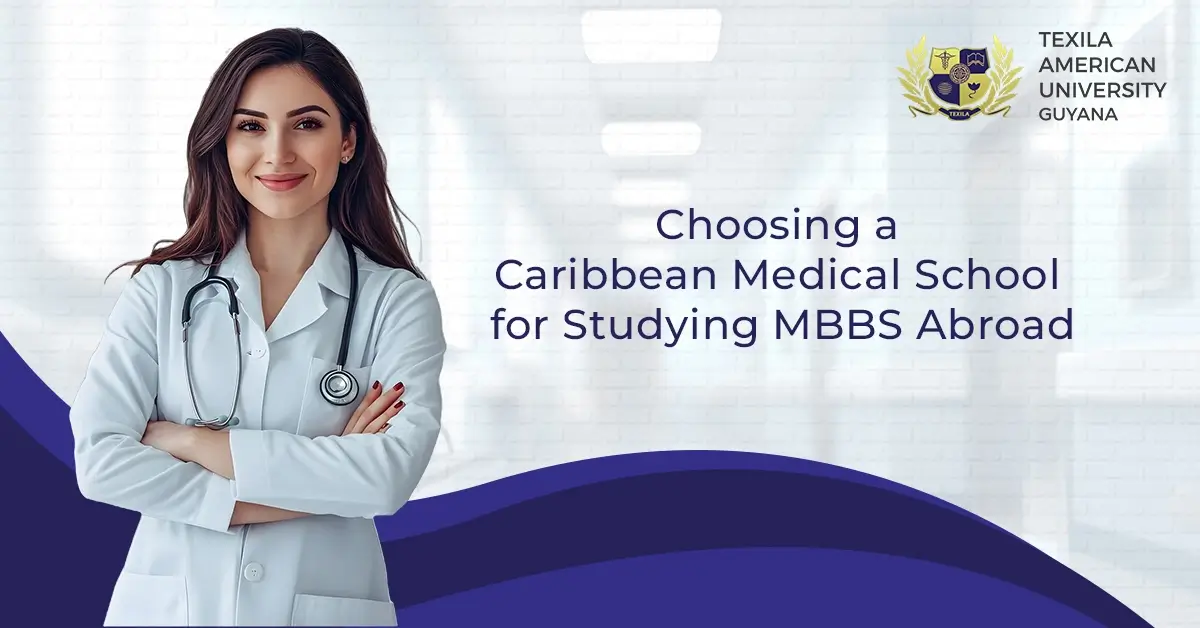Blog Summary
Becoming a doctor is not easy, with strict requirements and fierce competition. The Caribbean medical schools have become a strong alternative for those who dream of practising medicine but find the U.S. or other countries’ medical school acceptance challenging. These schools provide a welcoming environment, a U.S.-aligned curriculum, and reputable clinical experiences that make the path to a medical career achievable and rewarding.
Why Caribbean Medical Schools Are a Popular Choice
Caribbean medical schools have gained popularity recently as more students seek an alternative to traditional routes. With limited seats in U.S. medical schools, intense competition, and high entry requirements, Caribbean institutions provide a viable solution for passionate students who might not meet all the criteria but are determined to pursue their medical dreams.
Challenges in Traditional Medical School Admissions
Getting into a U.S. medical school is challenging. Prospective students are expected to achieve top scores on exams like the MCAT and maintain a high GPA. The competition is so fierce that acceptance rates hover around 7%, with many students applying multiple times without success. Not all students have the luxury of time to keep reapplying, and this is where Caribbean medical schools can provide an appealing alternative.
Advantages of Choosing a Caribbean Medical School
- Higher Acceptance Rates: Many top medical schools in the Caribbean have higher acceptance rates than their counterparts in the U.S., Canada, or the U.K. This opens doors for students from diverse backgrounds, allowing them to pursue their passion without impossible admission hurdles.
- Flexible Admission Process: Caribbean medical schools often follow a rolling admissions process, allowing students to apply throughout the year. This flexibility relieves students who have missed deadlines or need additional time to prepare for the application.
- U.S. Curriculum Alignment: Most Caribbean medical schools offer a curriculum modelled on U.S. medical standards, which makes it easier for students to transition back to the U.S. or Canada for clinical practice. This curriculum also helps students prepare effectively for the USMLE (United States Medical Licensing Examination), an essential requirement for medical licensure in the U.S.
- Clinical Rotation Opportunities: Partnerships with U.S. and Canadian hospitals provide clinical rotation spots for Caribbean students, allowing them to gain hands-on experience and a potential pathway to residency. This is a critical benefit, as it aligns with the clinical requirements in North America and enables students to build networks for future career opportunities.
- Accreditation and Recognition: Many Caribbean medical schools accredited by U.S. and international bodies provide students with the qualifications necessary for licensure in the U.S., Canada, and other countries. This accreditation makes the degrees from good Caribbean medical schools highly respected, providing a quality education and valuable credentials.
Disadvantages of Caribbean Medical Schools
- Distance from Home: Studying abroad means being away from family and friends, which can be challenging for some students. While Caribbean schools offer a rich campus life, the distance can impact students’ social and emotional well-being.
- Traditional Grading System: Caribbean medical schools often follow an A-F grading system, unlike many U.S. schools that use a pass/fail grading approach. This can add stress, as students must maintain high grades for residency applications.
- Potential Stigma: Some employers may carry an unfounded stigma against graduates from international American universities in the Caribbean. However, this perception is gradually changing as more Caribbean graduates excel in residency and professional roles.
- Adapting to a New Environment: Caribbean schools often offer student support services, but adjusting to new cultures and climates can be challenging initially. With time, most students adapt, gaining resilience and confidence.
Who Should Consider Caribbean Medical Schools?
Caribbean medical schools are ideal for students who:
- Are you open to an alternative pathway to a medical career
- Are resilient and motivated to excel academically
- May have lower-than-ideal MCAT or GPA scores but are committed to improving
- Seek flexibility in admission deadlines and entry requirements
- Are excited about studying in a tropical environment
Studying in the Caribbean might be the perfect fit if any of these traits resonate.
Debunking Myths About Caribbean Medical Schools
- “Most Students Drop Out”
While medical school is challenging, dropout rates are similar to other institutions. Dedicated students can complete their degrees and enter their chosen fields successfully.
- “No Residency Opportunities”
Many Caribbean medical schools accredited in the USA have solid residency match rates, giving graduates ample opportunity to enter residency programs.
- “Caribbean Medical Schools Cost More”
The cost of medical schools in the Caribbean is often comparable to U.S. programs, and any school provides scholarships and financial help to assist students with their expenses.

Spotlight on Guyana as a Top Caribbean Medical Destination
Guyana is an exciting option for medical students because it offers a friendly English-speaking atmosphere, affordable living costs, and a rich mix of cultures. Without entrance exams, Caribbean medical schools in Guyana provide accessible, high-quality education in a peaceful setting ideal for academic focus and personal growth.
Success Stories and Career Paths of Caribbean Graduates
Graduates from Caribbean medical schools have successfully entered fields like internal medicine, surgery, and other demanding medical specialities. Those who work hard and perform well in clinical rotations often secure competitive residencies, building impressive careers.
Conclusion
Choosing a medical school in the Caribbean provides flexibility, opportunities, and recognized programs that can help you build a successful medical career. For students passionate about becoming doctors but facing challenges with traditional admissions, the Caribbean can be the ideal setting to make their dreams a reality.












